
Who Is the Real Authentic You?

Be yourself. Everyone else is already taken.
Mike Robbins, in the book by the same title
What do you see when you look into a mirror? In my case, it’s an ever-increasing network of wrinkles to go along with a very gray head of hair. Happily, I still have most of mine. That’s one of the beautiful parts of being a woman. And what’s with that, anyway. Women are supposed to be the worriers, yet they don’t lose hair as men do. But maybe worrying only causes the gray part. I’m not sure, but I do know that my face and my body certainly aren’t what they once were and, as much as I hate to admit it, sometimes that bothers me a lot. I know I shouldn’t let it, but I’m human and something in my brain constantly tells me that it surely would be nice to be young and wrinkle-free again. Somewhere in my faded past, I recall a young girl with firm and lovely skin, with a body that could run and play all day until I dropped into my bed at night only to prepare myself for another day of the same. I certainly didn’t waste time in front of a mirror concerned about how I appeared to others. I was the tomboy of my neighborhood, always trying to best the boys at every encounter.
hair. Happily, I still have most of mine. That’s one of the beautiful parts of being a woman. And what’s with that, anyway. Women are supposed to be the worriers, yet they don’t lose hair as men do. But maybe worrying only causes the gray part. I’m not sure, but I do know that my face and my body certainly aren’t what they once were and, as much as I hate to admit it, sometimes that bothers me a lot. I know I shouldn’t let it, but I’m human and something in my brain constantly tells me that it surely would be nice to be young and wrinkle-free again. Somewhere in my faded past, I recall a young girl with firm and lovely skin, with a body that could run and play all day until I dropped into my bed at night only to prepare myself for another day of the same. I certainly didn’t waste time in front of a mirror concerned about how I appeared to others. I was the tomboy of my neighborhood, always trying to best the boys at every encounter.
Those days are long gone and though I sometimes wish for a return to more carefree times, I know I can’t reverse the process of aging, at least not yet. Who knows what tomorrow’s medical miracles may reveal. But then I remember that I’m just where God intended me to be at my “tender” age and I know that all is well.
What all of us want are those few authentic relationships—and we’ll trade who we really are for who we think we need to be. Bob Goff
 In today’s world, so much focus is on physical perfection. We think we need to be prettier or more handsome, smarter, or more successful. We choose to befriend the most influential people, work in the most sought-after jobs, climbing the social and financial ladders. And to do all that we think we must retain our youthful appearance. We tend to compare ourselves with those around us who seem more successful. Even more so, with those, we see on our screens, who always portray the best in their lives. We don’t often get a glimpse of the real person.
In today’s world, so much focus is on physical perfection. We think we need to be prettier or more handsome, smarter, or more successful. We choose to befriend the most influential people, work in the most sought-after jobs, climbing the social and financial ladders. And to do all that we think we must retain our youthful appearance. We tend to compare ourselves with those around us who seem more successful. Even more so, with those, we see on our screens, who always portray the best in their lives. We don’t often get a glimpse of the real person.
We seek perfection in so many ways, but we can’t escape the realities of aging forever. And why should we? Why are we so captivated with youth and beauty? Why would we want to change what God made in His own image with His own hands? In His eyes, we are all beautiful. Our society has one view of beauty, but God has another. We need to step away from our wants and let God show us His authentic view of us.
God never looked in your mirror & wished He saw someone else. Bob Goff
All this talk of searching for authenticity brings to mind a conversation from a few days ago with my daughter. She was telling me that her daughter had been invited to audition for a special choir at school. Rachel just entered sixth grade and was able to choose an elective course this year. She chose choir and she’s also starting in band. She’s always loved music, and started rocking to contemporary Christian when she was still in diapers. And since then she has developed a pretty good stage presence in school and at her church and is endowed with accurate pitch and nice tonal quality. So it came as no surprise that she received the invitation to do more. Now she’s nervous that she may not make the cut. She’s definitely a worrier. Her mom explained that the invitation carried a realistic expectation that she will be asked to sing with the group, but it may not look exactly as she sees it now.
You see, she’s always seen herself as a leader, but her ability to hold accurate pitch at an early age may make her a good candidate for harmony and in the music world, those who harmonize are not in the spotlight. Sometimes finding your authenticity means making significant changes. Her mom had to make a change in high school, from volleyball to chamber singers, a choice that helped prepare her for the role she now plays in their church praise band. Her beautiful alto voice and perfect pitch harmonize with all the other voices to bring wholeness to the arrangement and beautiful worship fills their sanctuary. Rachel may be called upon to make a similar choice. Maybe because of her ability to sense the intricacies of the composition, she can learn to harmonize with her counterparts to bring beauty to the whole. Perhaps she can learn to develop the authentic musical talent God intended her to share. Maybe she doesn’t need to lead the pack but instead, be an integral part of it. Will she be willing to search for the authenticity endowed by her creator, wherever it may lie?
Authenticity has power because it is living as the original version of who God created you to be, and that will always be impossible to improve on. Bear Grylls, Soul Fuel
Each of us should embrace our authentic selves; be who we really are and do it today, for we never know what tomorrow may bring. Who we are can become who we were in an instant.
Read more...
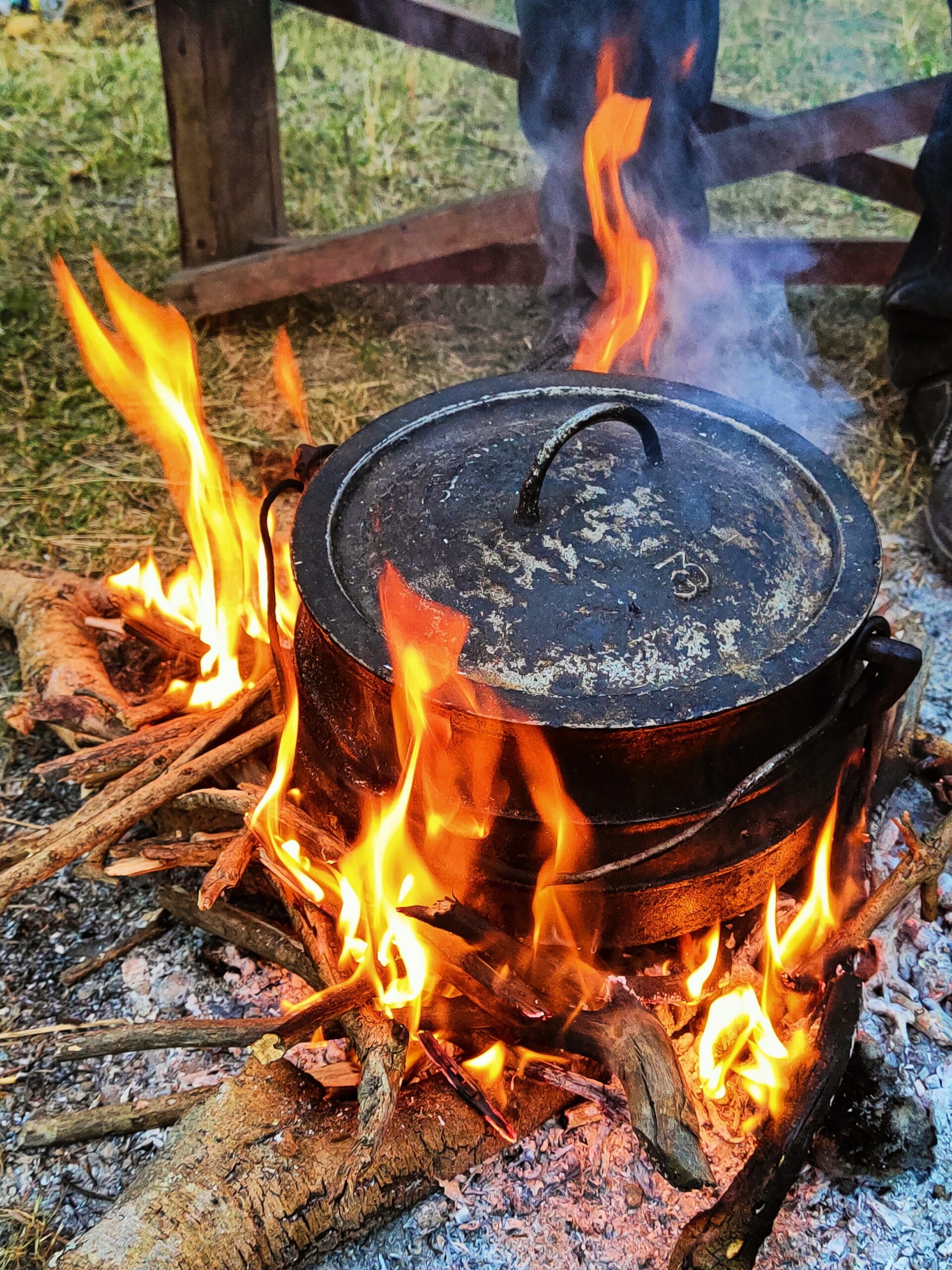
The Perfect Recipe

So heap on the logs and kindle the fire, cook the meat well, mixing in the spices…..Ezekiel 24:10a
The arrival of September and our mini cool down resulting from much-needed rain have conspired to send my thoughts wafting toward more time in the kitchen making old favorites and perhaps giving some new recipes a try. Our doctor keeps trying to nudge us toward healthier eating habits and we’re making some progress, but we still believe his way is a little over the top for us. While we limit our fat intake and look toward less bad carbs, we’re not on the vegan train, nor do I expect we’ll ever be ready to totally eliminate animal products from our diet. That being said, I am always searching for some healthier ways to sustain us in our day-to-day diet so we can splurge sometimes on special treats, especially at holiday gatherings and on camping trips and other getaways.
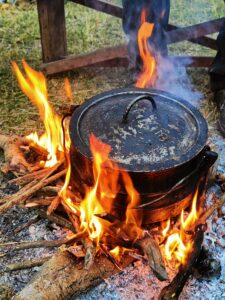 I think I’ve probably mentioned Dutch oven meals and desserts somewhere along the line. Several years ago when our daughter’s family added a camper to their possessions, they wanted a Dutch oven but not a new one. They wanted one of the old ones that was well loved and well seasoned over years of providing for a family. So one day as we strolled through a flea market, we happened on the perfect Christmas gift. It was the correct size and just needed some sprucing up to make it an acceptable gift. After more cleaning than we thought it would need and lots of metal brushing, it was ready to wrap. I don’t think I’d ever seen Jeni happier with a gift.
I think I’ve probably mentioned Dutch oven meals and desserts somewhere along the line. Several years ago when our daughter’s family added a camper to their possessions, they wanted a Dutch oven but not a new one. They wanted one of the old ones that was well loved and well seasoned over years of providing for a family. So one day as we strolled through a flea market, we happened on the perfect Christmas gift. It was the correct size and just needed some sprucing up to make it an acceptable gift. After more cleaning than we thought it would need and lots of metal brushing, it was ready to wrap. I don’t think I’d ever seen Jeni happier with a gift.
If you’re not familiar with the Dutch oven, it’s a cast iron pot large enough to prepare a full meal for a number of people. There are varying sizes for different families. It sits above the surface on the legs and has an indented lid for placing coals directly on top and directly underneath. In days of old, the coals were part of everyday life in the campfire or fireplace. Today, many Dutch oven bakers use charcoal and have determined just how many briquets are needed for a specific recipe. Our kids make breakfast casseroles, chili, and magnificent fruit cobblers that make me salivate just sitting here thinking about them. Obviously, Dutch oven cooking is not an exact science, but everything cooked over a campfire always tastes better just for the experience.
And, of course, things can go wrong in any cooking adventure. I recall a time in a beautiful campground in the Smoky Mountains when a pot of ham and beans tantalized our taste buds all day long. It was fall and a little cool. Ken was trout fishing in the stream beside our campsite and I was just enjoying being in God’s lovely outdoors. I wasn’t cooking over the fire. I used a modern crockpot so no tending was necessary but the flavorful smells drifting from that pot certainly worked up an appetite. We sat down to dinner in great anticipation. The first bite was not exactly what we had expected, so we tried another and looked at each other in total disgust. You see, I was accustomed to making a large pot of beans at home and this was a mini pot. I’m not a measurer when it comes to making savory dishes. It’s just a pinch of this and a tad of that. Well, I had tipped the salt shaker a “TAD” too much and those beans were inedible. I don’t recall what we did finally eat that evening, only what we did not eat.
pot of ham and beans tantalized our taste buds all day long. It was fall and a little cool. Ken was trout fishing in the stream beside our campsite and I was just enjoying being in God’s lovely outdoors. I wasn’t cooking over the fire. I used a modern crockpot so no tending was necessary but the flavorful smells drifting from that pot certainly worked up an appetite. We sat down to dinner in great anticipation. The first bite was not exactly what we had expected, so we tried another and looked at each other in total disgust. You see, I was accustomed to making a large pot of beans at home and this was a mini pot. I’m not a measurer when it comes to making savory dishes. It’s just a pinch of this and a tad of that. Well, I had tipped the salt shaker a “TAD” too much and those beans were inedible. I don’t recall what we did finally eat that evening, only what we did not eat.
It’s important to get our cooking recipes right. Sure, we can fudge a little here and there, especially after many years of experience in the kitchen, but as witnessed, even experienced cooks can make mistakes. That’s why knowledge of how to use ingredients is important and, if you’re just getting started in the kitchen, following a good recipe is a must. The same can be said about life. If we wander through it with no focus and just throw in whatever ingredients make themselves available, the result can be disastrous, just like my ham and beans.
We need a really good guidebook and that would be the Bible, choose the translation that suits us best.
We need to realize the importance of family, however, that may look, and do our part to make it whole.
We need a loving church home and friends who will provide support in troubled times.
We need to offer help and comfort to those who can’t help themselves.
We need to recognize our own need for a Savior and acknowledge the one and only God.
Do not labor for the food that perishes, but for the food that endures to eternal life….John 6:27a
 Just one more quick tale of pre-teen woe and a change of plans. If you’ve had any experience with eleven-year-old girls who see themselves as grown up but haven’t yet grown the thick hide that allows them to accept sudden change as a way of life, then you know a lot about our youngest grandchild. She loves working in the kitchen. Her other Grandma has kept her at her side cooking since she was a tiny tyke. I’m not quite that brave, although she’s always had her own chores in my kitchen as well. On a recent campout, she was going to make her latest favorite recipe, chicken quesadillas, in their camper’s outdoor kitchen. Her version is to grill the tortillas sans oil and even chicken, just adding cheese. I realize many restaurants serve these very basic quesadillas as an appetizer, but these were our entrée. I’m not sure how she thought they could be chicken quesadillas without chicken. Maybe she just skipped over that part of the conversation. At our house, the ordinary quesadilla becomes a feast. I add grilled peppers and tomatoes to the seasoned chicken and cheese inside the tortilla. Then we have lettuce, sour cream, and sauces to add along with ripe olives and avocado or guacamole, as you prefer. There you have it, a feast fit for a king! She was having none of that. Whoever heard of putting such things on a quesadilla? So, only the chicken and cheese went inside, and she did agree to the chicken. The rest, absent the grilled peppers because they don’t like them, was served as toppings. And you know what, she loved it! Change can sometimes be a wonderful thing as long as we don’t get completely off course.
Just one more quick tale of pre-teen woe and a change of plans. If you’ve had any experience with eleven-year-old girls who see themselves as grown up but haven’t yet grown the thick hide that allows them to accept sudden change as a way of life, then you know a lot about our youngest grandchild. She loves working in the kitchen. Her other Grandma has kept her at her side cooking since she was a tiny tyke. I’m not quite that brave, although she’s always had her own chores in my kitchen as well. On a recent campout, she was going to make her latest favorite recipe, chicken quesadillas, in their camper’s outdoor kitchen. Her version is to grill the tortillas sans oil and even chicken, just adding cheese. I realize many restaurants serve these very basic quesadillas as an appetizer, but these were our entrée. I’m not sure how she thought they could be chicken quesadillas without chicken. Maybe she just skipped over that part of the conversation. At our house, the ordinary quesadilla becomes a feast. I add grilled peppers and tomatoes to the seasoned chicken and cheese inside the tortilla. Then we have lettuce, sour cream, and sauces to add along with ripe olives and avocado or guacamole, as you prefer. There you have it, a feast fit for a king! She was having none of that. Whoever heard of putting such things on a quesadilla? So, only the chicken and cheese went inside, and she did agree to the chicken. The rest, absent the grilled peppers because they don’t like them, was served as toppings. And you know what, she loved it! Change can sometimes be a wonderful thing as long as we don’t get completely off course.
Start from scratch with Jesus every day and then be careful about what you add to your life. Bob Goff
Read more...

Survival of the Fittest

The more I study nature, the more I stand amazed at the work of the creator. Louis Pasteur, French Chemist

It was just a quiet Saturday morning, the neighborhood lawn enthusiasts had not yet revved up their mower engines. The grass was sparkling with dew and I was watering my perennials. I’d bent down to pull a few weeds when something suddenly struck the middle of my back. I shook it off and began to search for the culprit. At first sight, I thought it was my friend, the Hummingbird Clearwing Moth. But a closer look revealed a very different insect. While the Hummingbird Moth has a furry-looking striped body with a rather flared tail, this one also had clear wings but its body was a very shiny black, tapered at the tail, with distinctive yellow markings. It definitely resembled the shape of a wasp but was somewhat larger. It also held tightly in its clutches another insect that appeared dead and the wasp-like creature appeared to be eating it. I later learned differently.
I ran inside to get my phone to document my find and snapped quite a few shots of it. I’d been hearing a lot about a killer wasp that had invaded the state of Washington. Not being familiar with the whole story, I wondered if perhaps one had found its way to our back yard and I almost convinced myself that it could be true. In my haste, I even made an attempt to step on it. That’s when it became agitated and began to chase me. I made my escape and went inside. A quick Google search showed me a photo that completely matched my own and it was identified as a Cicada Killer Wasp, not to be confused with the Asian Killer Hornet. I was quite relieved that I’d not killed my visitor.
 After studying a bit about the species I learned that the female has a stinger that can deliver a potent punch but that they typically aren’t aggressive toward humans. Not so with cicadas, however, which are often swept up mid-air and stung, as was happening at the onset of my encounter, causing the collision with my back. The venom paralyzes the cicada so that the killer wasp can carry it back to its underground home and stash it, along with others, in each of the nests she has created. She will then deposit eggs in each nest and when the larvae hatch, these still-living cicadas will nourish them until they are ready to emerge and complete their one-year life cycle.
After studying a bit about the species I learned that the female has a stinger that can deliver a potent punch but that they typically aren’t aggressive toward humans. Not so with cicadas, however, which are often swept up mid-air and stung, as was happening at the onset of my encounter, causing the collision with my back. The venom paralyzes the cicada so that the killer wasp can carry it back to its underground home and stash it, along with others, in each of the nests she has created. She will then deposit eggs in each nest and when the larvae hatch, these still-living cicadas will nourish them until they are ready to emerge and complete their one-year life cycle.
Now let’s take a moment to consider the cicada. You can’t live through a Missouri summer without hearing the song of this interesting insect. And what child has not delighted in the discovery of a crusty shell left behind by the emerging adult, typically in the perfect likeness of the living creature? There are more than three thousand species of cicadas throughout the world and many remain undescribed.
 The singing we hear is the males calling for a mate. Once mating occurs, the female lays her eggs in slits cut into tree bark. Newly hatched nymphs fall to the ground and burrow, some as deep as eight feet, where they will spend most of their lives. Their strong front legs enable them to excavate chambers in proximity to roots where they feed on sap. They may be nibbling on some of your plants tender roots right now and, as they do, their bodies and the excavated chambers become encrusted with cast-off fluids. When the time is ripe, they tunnel to the surface and shed their skins for the last time, leaving behind that exoskeleton that your child or grandchild found so exciting.
The singing we hear is the males calling for a mate. Once mating occurs, the female lays her eggs in slits cut into tree bark. Newly hatched nymphs fall to the ground and burrow, some as deep as eight feet, where they will spend most of their lives. Their strong front legs enable them to excavate chambers in proximity to roots where they feed on sap. They may be nibbling on some of your plants tender roots right now and, as they do, their bodies and the excavated chambers become encrusted with cast-off fluids. When the time is ripe, they tunnel to the surface and shed their skins for the last time, leaving behind that exoskeleton that your child or grandchild found so exciting.
Some are referred to as annual cicadas, but that doesn’t mean they complete their life cycle in one year. Most experience a two to five-year cycle allowing a rotation of sorts that produces a new crop every summer, some years greater in number than others. And then there are the species that experience a thirteen or seventeen-year cycle. Can you imagine digging and foraging roots for all those years only to surface, reproduce and die, most of them within a few weeks after their emergence? And let’s not forget their odds of becoming someone’s lunch.
God created a wonderful balance in nature, one in which each creature was blessed with a unique array of tools enabling it to survive instinctively. Some do survive and some become prey so that others may eat. They all serve to maintain a balance in the circle of life.
 The human creature was given an extra tool, the power to reason. Then we were given a choice. We can choose between life and death. We will all leave this earth in due time, but we have the gift of choosing whether or not we continue to live on into eternity.
The human creature was given an extra tool, the power to reason. Then we were given a choice. We can choose between life and death. We will all leave this earth in due time, but we have the gift of choosing whether or not we continue to live on into eternity.
….choose today whom you will serve….as for me and my family, we will serve the Lord. Joshua 24:15
Read more...
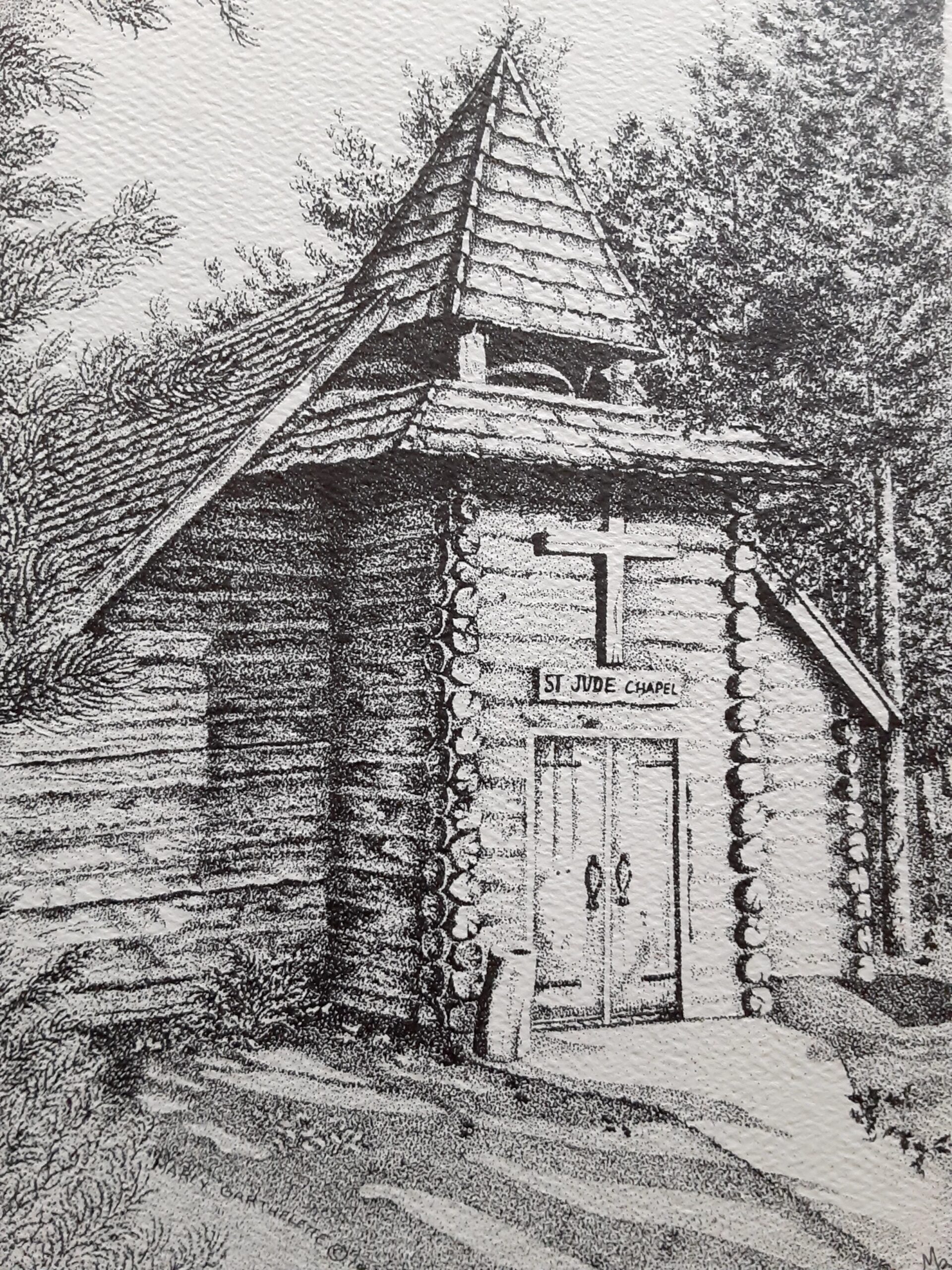
Course Corrections

We may make a lot of plans, but the Lord will do what he had decided. Proverbs 19:21 CEV
If you read my little tale of last week, you know that I was scheduled for MOHS surgery to remove cancer cells from my nose. I had made every effort I could to be sure our home was prepared for my absence from a lot of daily routines because, in my previous experience, MOHS surgery also led to plastic surgery and I didn’t know, in advance, how this event would play out. I walked into the medical offices pretty relaxed and confident that I would handle whatever transpired.
There’s a saying I’ve often heard, “Man plans, God laughs!” It’s a very loosely interpreted version of the verse above from Proverbs. But it pretty much described my feeling after what turned out to be my consultation. The doctor didn’t want to cut my nose. He described my cancerous and pre-cancerous cells as being very superficial and concluded that surgery would be overkill. Now you’d think that would be good news and I would be overjoyed, but his description of the reactions I could expect from the topical ointment I would be using wasn’t pleasant. Besides, I was mentally prepared for something very different. Now I had to hit the brakes and do a one-eighty.
 This certainly wasn’t the first time in my life that major plans were foiled, but I remember one in particular that really altered my life. I’ve always leaned toward creativity and once harbored dreams of being a professional artist. Life came hurling at me and college faded from my future. But in my forties, I became involved in advertising art and later discovered a keen interest in serious pen and ink drawings. I was a decent artist working in ink with a focus on historic buildings. My style was stipple or pointillism. It was very detailed work created entirely of tiny dots, very tiring for my right hand and arm as well as my eyes. I was blessed to have a private showing at the Missouri State Museum and sold prints as well as originals to a number of businesses. Things were going well. I wouldn’t make millions but I really enjoyed the work and was gratified that others enjoyed viewing it.
This certainly wasn’t the first time in my life that major plans were foiled, but I remember one in particular that really altered my life. I’ve always leaned toward creativity and once harbored dreams of being a professional artist. Life came hurling at me and college faded from my future. But in my forties, I became involved in advertising art and later discovered a keen interest in serious pen and ink drawings. I was a decent artist working in ink with a focus on historic buildings. My style was stipple or pointillism. It was very detailed work created entirely of tiny dots, very tiring for my right hand and arm as well as my eyes. I was blessed to have a private showing at the Missouri State Museum and sold prints as well as originals to a number of businesses. Things were going well. I wouldn’t make millions but I really enjoyed the work and was gratified that others enjoyed viewing it.
We moved a couple of times and my focus shifted for a while. When I was ready to return to my work, a devastating reaction to a prescription medication robbed me of the muscle strength required in my hand and arm. And right on the heels of that dilemma, an unusual malfunction occurred in my right eye that required major surgery. My vision is acceptable for most everyday tasks but my dream of being an artist was squelched again.
I’ve filled the creative urge in my personality with other endeavors that were less strenuous for the eyes and hand muscles. Eventually, I recalled how much I enjoyed writing as a teen. I gathered all my information regarding the historic structures that Ken and I had visited and began a series of personal interviews which led me to create stories from our area’s past that reached the hearts of other Missourians. I was published in several local newspapers and eventually started writing for a smaller church that we attended. Now, here I am writing for Aldersgate. You may think the story ends there, but it doesn’t.
Last Christmas, my daughter brought along her new iPad with Apple Pencil on their holiday visit. She pulled up her sketching app and handed it to me with instructions to draw something, anything. I quickly sketched a calla lily which I thought was elementary level but everyone else loved it. My granddaughter had lately sought my advice in her artistic endeavors and her parents, along with Ken, had been dropping hints that I should get back into drawing. Couple that with the possibilities offered by this electronic version of artwork and I was intrigued. My laptop was cranky and my iPad was old. I was wanting an upgrade so I found the perfect new iPad with Pencil and set about trying out my skill. I hated it! I don’t really know why I thought I’d like to draw electronically. It just wasn’t for me. My iPad still gets a workout, just not the sketching app.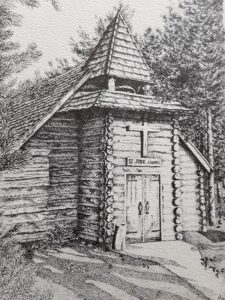
Soon I picked up a few drawing pencils, some charcoal, and pastels, all of which use a much more fluid stroke and do not stress my hand or eyes as the ink work did. Ken found me a great drafting table at a yard sale. It’s refurbished and occupies a well-lit area by our bow-front windows. And, of course, after experimenting with my new mediums, I just had to try ink and guess what. I can still do it, probably not as finely detailed as I once did and certainly in shorter shifts. But the beauty is, that I have a dedicated space where my work can just stay out. If I walk by and see something that needs to be altered, I can plop down for a few minutes and make the changes. I’m once again doing what I’ve loved for so long. It won’t be the same, but that’s OK. It was a very long detour, but God obviously thought the time was right and He caused the ones I love to spark my interest and pave the way.
I’m grateful for that and I’m beginning to be grateful that my doctor chose the less aggressive path for treatment of those pesky cancer cells. In a few weeks, after we get some camping done and celebrate some special days, I’ll apply the prescribed medication Monday through Friday for four weeks and watch my nose turn red and peel away those cells, during which I may experience extreme itching, burning, crusting, scabbing and possibly a few flu-like symptoms. Oh, and protection from the sun is a must so I’ll hibernate most of the time. Of course, the list of possible reactions is very lengthy but those are the more likely ones and I’ll get through it with the help of those who love me most, the one in heaven and the others here on earth.
My life has been a series of course corrections and I’m sure the same is true for you. Once again, I must accept God’s plans for my life instead of my own and that brings me right back to my very favorite Bible verse and the message that I try to remember every moment of every day. It’s worded a little differently in each version and this one seemed right for this application. Though I’ve offered it before and likely will again, I hope it will comfort you as much as it has always comforted me:
I say this because I know what I am planning for you. I have good plans for you, not plans to hurt you. I will give you hope and a good future. Jeremiah 29:11 New Century Version, NCV
Read more...

Singing in the Shadow


Because you are my help, I sing in the shadow of your wings. I cling to you, your right hand upholds me. Psalm 63:7-8
When you read this, I will hopefully have the answers to some of the questions looping through my mind this weekend. I’m having MOHS surgery to remove some basal cell carcinoma on Tuesday or, as you receive this Gatepost, it will be yesterday. My writing deadline is Monday, so I’m always thinking a little ahead. And, just so you know, this isn’t the first time the MOHS Doc has scraped the surface of my delicate little nose. That episode occurred nine years ago but first, let me brief you a bit on the ins and outs of skin cancer. Oh, and the doctors all say, “If you have to have cancer, basal cell is the best kind to have.”
 When I was young, I was outdoors every moment of the day and my skin was brown as a berry as my husband likes to say. We all thought that a lot of dirt and a deep tan made for a very healthy child. Of course, since then we’ve learned to use sunscreen, but back then we’d never heard of it. I played in the sun from daylight til dark, and swam every chance I could, in the pool or at the lake. As a teen, I learned to water ski and loved to dive off the boat into the deepest water for a cool swim. I spent hours in the water with the bright sun reflecting off its surface.
When I was young, I was outdoors every moment of the day and my skin was brown as a berry as my husband likes to say. We all thought that a lot of dirt and a deep tan made for a very healthy child. Of course, since then we’ve learned to use sunscreen, but back then we’d never heard of it. I played in the sun from daylight til dark, and swam every chance I could, in the pool or at the lake. As a teen, I learned to water ski and loved to dive off the boat into the deepest water for a cool swim. I spent hours in the water with the bright sun reflecting off its surface.
Then about eighteen years ago, a red spot developed on my nose and it would heal for a while but kept coming back. It was the better part of a year when I finally saw the dermatologist and was told I had pre-cancerous cells and he would freeze them. That went very well and I had no problem for several more years. Then the sore spot started breaking out again and for the next couple of years, my primary care physician continued to freeze the cells. But one day, he decided I needed a biopsy and the result was basal cell carcinoma.
My next stop was the office of the MOHS surgeon. If you’ve been around for a few decades, this type of surgery may be very familiar but, if you’re lucky enough to be young and have healthy skin, let me explain. It’s a rather specialized surgery and when I had my first encounter there was only one MOHS surgeon in all of southwest Missouri. Once he has you good and numb, meaning in my case I can’t feel the entire middle of my face, he begins to remove the affected cells. The trick is to get all the evil little cells and a required margin around them without taking more skin than necessary. So he starts with the amount that seems appropriate and takes it to the in-house lab to determine if the first cut did the job. If so, the wound gets cleaned up, stitched if needed, and I go on my merry way. If the margins are not clear or clear enough, we do it again, with a significant wait time between cuts. When the test finally reveals that enough has been removed, you guessed it, the clean-up procedure begins.
In my first experience, it took two times to remove all the damaged tissue and I was assured it was all gone. But the doc had some bad news too. My wound was so deep that I had to be sent to a plastic surgeon for reconstruction. They don’t like to take chances when dealing with the face. I had driven myself to the office that day because Ken had an important meeting and the doctor’s staff had assured me that I would be fine to drive. I don’t like driving in Springfield, it was raining hard that day and I was pretty close to terrified about the future of my nose, but I set out on my journey and made it safely to the office of the plastic surgeon, though a bit rattled. My visit there did little to allay my fears and I had to wait four days for the surgery, making me even more jittery.
Long story not quite so long, it all turned out well. My plastic surgeon was great, well, both my surgeons were great. The end result was a mostly invisible scar and over time, I ceased to notice it, until, that is, it started to break out again, which brings me to the present. After a year or more of being told that my new red spots were just part of my scar and asked if I had scratched my nose to cause the break-out, a biopsy was taken and of course, you know the result. With that diagnosis came a flood of questions spurred by the earlier surgeries. Will it be a one-stop procedure or will I require the second and more ominous surgery to reconstruct my nose, obviously extending the recovery time? I know from the first time that, if plastic surgery is needed, I can’t go out for a couple of weeks because I look like I’ve been hit squarely in the face with a fastball. How bad will the scar be this time? And how much grocery shopping do I do in advance? How long before I can get back to gardening? You can’t bend or exercise for a few days and water is a must for my plants. And the list goes on….
Don’t run or hide from your weaknesses. Accept and embrace them. And lay them before the almighty.
He longs to enter, transform, and empower our lives. It is what He does—but only when asked,
and only where there is room for him to work. Bear Grylls, Soul Fuel
I began this journey with a lot of fears and what-ifs, but I’ve realized that I won’t do this alone. In my weakness and with all my questions, God will intervene and become my support. I place my trust in Him who knows me well and loves me anyway. He’s going to be there beside me all the way.
I plan on having my own personal driver with me this time too. He’s not allowed to have other commitments. With my two guys beside me, I’ll be just fine and when you read this, I will know whether or not plastic surgery will be a necessary part of my future. I’m hoping not, but I’ll take what comes and not borrow any trouble before it’s necessary.
There’s a power to weakness, strange as it sounds. But when we admit that we’re unable to fight the
big battles alone, that is when we learn to effectively rely on a stronger power. God-confidence
is always going to win over self-confidence. Bear Grylls, Soul Fuel
Emmanuel, God with us, I am ever grateful for your presence in every moment of my day and night as well as every aspect of my life. Whether in celebration or challenge, you will share your Spirit with me.
Thank you….Marcy
Read more...

A Week for Tiny Miracles

Before the mountains were born, before you birthed the earth and the inhabited world—from forever in the past to forever in the future, you are God. Psalm 90:2,4
 This week my yard has been witness to a host of small miracles. For the first time in weeks, I walked outside in the early morning to find sparkling dew on the grass. Black-eyed Susan blooms danced atop brown and withered stems. Tall garden phlox which only attained about two-thirds their normal height and for which I held no hope of their typical second flush of blooms started producing a second round of buds. Daylilies, whose foliage had been long since removed, sprouted fresh green spikes. Bermuda grass, tough as buffalo hide, became green and cushy once more. Hydrangeas, the water hogs of the garden, held their leaves high and proud instead of wilting in the sun. Bugs were hatching in abundance, ladybugs were everywhere, and I spotted my favorite late summer insect, the clear-winged hummingbird moth. The sedums, being the succulents they are, suffered little throughout the hundred-plus temperatures and absence of rainfall, but they were nearly the only green left before the heavens’ bounty of moisture began to fall.
This week my yard has been witness to a host of small miracles. For the first time in weeks, I walked outside in the early morning to find sparkling dew on the grass. Black-eyed Susan blooms danced atop brown and withered stems. Tall garden phlox which only attained about two-thirds their normal height and for which I held no hope of their typical second flush of blooms started producing a second round of buds. Daylilies, whose foliage had been long since removed, sprouted fresh green spikes. Bermuda grass, tough as buffalo hide, became green and cushy once more. Hydrangeas, the water hogs of the garden, held their leaves high and proud instead of wilting in the sun. Bugs were hatching in abundance, ladybugs were everywhere, and I spotted my favorite late summer insect, the clear-winged hummingbird moth. The sedums, being the succulents they are, suffered little throughout the hundred-plus temperatures and absence of rainfall, but they were nearly the only green left before the heavens’ bounty of moisture began to fall.
They’re a group of small blessings, each on its own not making much of a splash on nature’s recently brown palette. But when joining forces together, those small miracles wove a tapestry of color that breathed life back into my very soul. It had hurt my heart to not be able to meet the daily demands of moisture to keep everything going, but I chose to let my giant island bed in the backyard go dormant, not knowing which roots would take advantage of the R & R then be ready to poke their heads up when the water finally fell.

The Spirit of God has made me, and the breath of the Almighty gives me life. Job 33:4 ESV
Those Black-eyed Susan blooms I mentioned earlier were half their normal size and they typically rise above a preponderance of dark green foliage. The foliage was dead and brown before the rain but the scraggly blooms held on. And, lo and behold, those stems must have garnered every minuscule amount of moisture they could find and telegraphed it through browned and hardened stems just to deliver a life-giving drink to tiny golden petals. They looked really strange, with brown stems and yellow petals, but they offered hope that next year will be better.
One of nature’s critters that didn’t make an appearance and for which my gratitude is never-ending would be the dreaded Japanese beetle. I saw two the entire summer and, if you don’t garden, you’ll never grasp the enormous blessing revealed in that simple statement.
Lord God, you created heaven and earth by your great power and outstretched arm; nothing is too hard for you. Jeremiah 32:17 CEB
Today, I actually saw an earthworm squirming along and wondered how deep it had to burrow to find moist earth and how did it know to make the journey back to the surface when moisture came. Did its underworld flood and send it climbing upward toward the surface once again? How did our robins know that a second or third nest of tiny mouths would be incredibly hard to keep fed when bugs and worms and even seeds were in short supply?
How could anyone see such miracles and not know that there is a God who is right in the midst of every tiny detail of the natural and the human world? He knows that some plants just have to shut down in times of heat and drought to conserve their energy for regeneration.

Just think about the fact that perennial roots are shipped all over the country, actually all over the world, in bare root condition, looking dry and lifeless. But when we add soil and water and nutrients, they spring forth in new life. How can it then be any more a miracle for them to rest during times of extreme heat and drought sense that better times lie ahead?
And how can we not accept that He will do the same for us?
Keep me as the apple of your eye. Hide me under the shadow of your wings. Psalm 17:8 ESV
Read more...
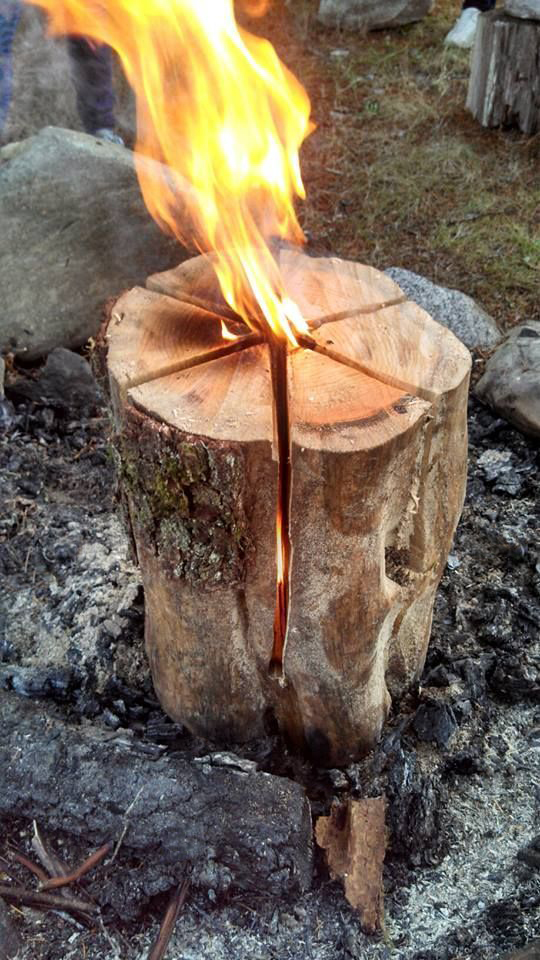
The Swedish Candle and Other Blessings

He provides rain for the earth, he sends water on the countryside. Job 5:10
It is Sunday morning as I write! A day for praise and worship! I have so much to be thankful for. These past few days, the heavens poured forth their bounty and every living thing breathed deeply of the smell of rain. Trees, grasses, and flowers soaked in every drop of moisture to rehydrate themselves after a long absence of life-giving rain. Birds flapped in reckless abandon throughout the yard wherever a puddle welcomed them. We, humans, had planned a camping trip but canceled, first because of impending heat and then of impending storms but 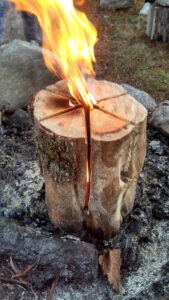 also because of issues with the camper. We did, however, drive to the campground through pounding rain, of course, where our kids camped and we had planned to be. We spent the day, a good portion of it indoors, just laughing and talking and catching up. The night before a burn ban had been in effect, but the deluge of the morning had lifted the ban and we were able to enjoy a campfire. What’s a camping trip without a campfire?
also because of issues with the camper. We did, however, drive to the campground through pounding rain, of course, where our kids camped and we had planned to be. We spent the day, a good portion of it indoors, just laughing and talking and catching up. The night before a burn ban had been in effect, but the deluge of the morning had lifted the ban and we were able to enjoy a campfire. What’s a camping trip without a campfire?
You might ask, where did we find dry wood? The answer is simple. Our son-in-law had squirreled away a Swedish candle log in the back of his truck. This unique method of providing a lovely campfire is great for summertime use when you don’t really want or need heat but choose to enjoy the ambiance of a fire. Nothing beats a campfire for relaxing the soul and bringing folks together. The Swedish candle log is a simple device made by standing a good-sized log on end and making several cross-cuts with a chainsaw, two-thirds of the way down the log, to resemble a sliced pie on top. Three to four cuts will be good, dividing the log into six or eight fairly uniform sections. Remember only two-thirds of the way down, not completely through. Start a small fire in the center of the top with kindling or charcoal and watch the flames emerge like a torch. The fire burns from the inside out, fueled by oxygen from the saw cuts, and creates really lovely patterns in the log as it burns down and eventually collapses upon itself.
We all got a good laugh from our daughter’s slip of the tongue in referring to the cut log as a Roman candle. Our fire didn’t propel colorful balls of fire into the air, just offered a nice, relaxing end to the day. We were sorry to have sacrificed the complete camping experience but were grateful for the good times we had.
were grateful for the good times we had.
As we were leaving the park, we happened upon a deer lying on the cool, damp ground relaxing and nibbling newly refreshed grass. A short while later the clouds of the day broke open to an amazing spectacle, one of those silver lining moments, so intense was the light against the cloudy gray background. It was a stunning reminder that God is always with us, in times of drought and in times of abundance. It came at the close of a week of losses in our neighborhood. One friend and neighbor ended his journey on earth while another moved into assisted senior housing. Other loved ones among us are dealing with family loss and serious illness. Our heat and drought had added to the overall feeling of discouragement, but our God never fails to remind us of His constant presence. We only have to be open to it.
Was it a perfect day? No, in reality, it was an average one. Heavy rain could have severely dampened our spirits, it was difficult to drive, but we laughed our way through it. Our daughter had taken a bad fall down slippery steps the night before but she didn’t belabor her misfortune, she kept right on going through her discomfort. Our eleven-year-old granddaughter (you know that
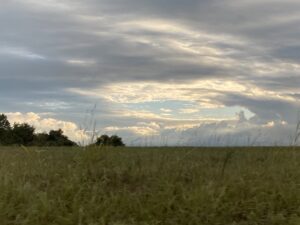
awkward tween time when kids are trying to find their place in the scheme of things) often becomes frustrated with all the “old” people who populate her world, but we all joked and laughed at her many mood swings and enjoyed the crispy goodness of the chicken quesadillas she cooked on the outdoor grill. We made a Dutch oven peach cobbler that didn’t go quite as planned but with many suggestions and a few corrections during the cooking process, it reached a slightly more than the golden brown stage. It wouldn’t have taken any prizes for presentation, but the flavor really tickled the taste buds. What else could a person ask for? Love and laughter with precious family, plentiful rain to relieve our drought, safe travel, good food shared, the magic of a Swedish candle log fire, the beauty of nature, and clouds decorated with silver linings sealing the promise that we are never alone.
Sometimes we should express our gratitude for the small and simple things like the scent of the rain, the taste of your favorite food, or the sound of a loved one’s voice. Joseph B. Wirthlin
Read more...
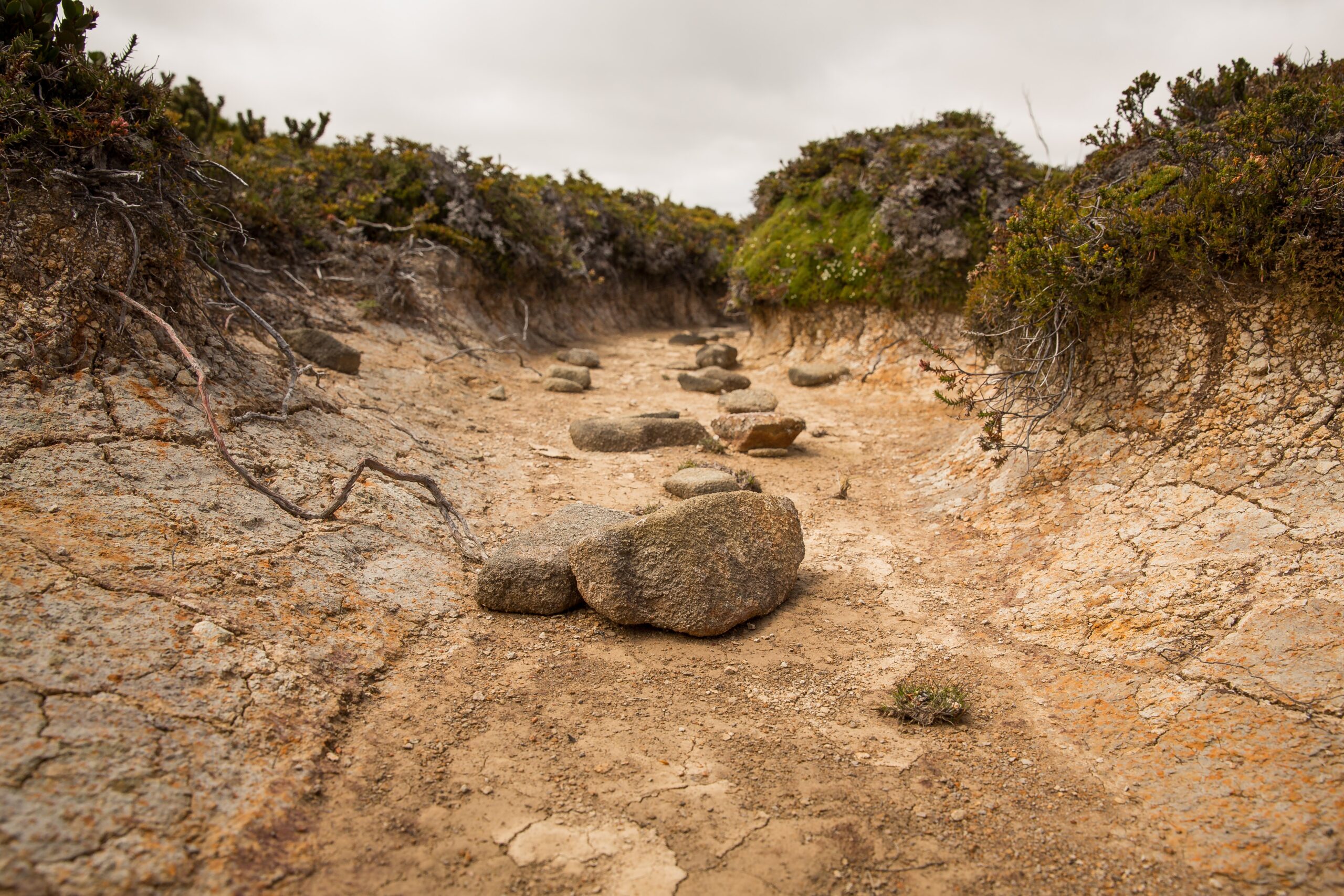
The Summer of ‘22

The Lord will send rain at the proper time from his rich treasury in the heavens and will bless all the work you do. Deuteronomy 28:12

The summer of 2022 has been a challenge thus far, at least at our house. There was no spring in southwest Missouri, just a giant leap from winter to summer. Lazy, hot days have been the theme for weeks. And when the rain spicket shut off, it meant business. The grass is brown and crunchy and August hasn’t even arrived. Hay couldn’t be cut until very late because of excess moisture and now the crops are dying in the fields. And let’s not forget our backyard gardens that are turning to dust.
Even my potted plants, which receive a good drink every day, can’t force themselves to bloom properly in the extreme temperatures we are experiencing. Day after weary day of 100 plus degrees without a drop of moisture from the sky. I wonder sometimes if God is sending us some kind of message and we haven’t received it yet. If so, He isn’t being shy about it.
If the heat and drought weren’t enough, COVID-related issues, hiring difficulties, and exorbitant transportation costs, have escalated prices at the grocery store and the gas pump to a level that has turned our budgets upside down and diminished customer service almost to the point of non-existence.
On a personal note, we’re experiencing refrigeration problems in the kitchen and in the camper. The big fridge in the kitchen has a problem with the water filter housing. The issue itself is minor and the fridge still cools our food efficiently but getting warranty repairs completed seems to take an act of congress. And you know how fast those wheels turn. Delayed parts delivery and disinterested service people seem to be the norm these days.
The biggest problem with the tiny camper fridge is the lack of use. Travel refrigerators differ from home models in that they don’t operate with a compressor. They use a combination of liquids and gases that must be heated before traveling through tubing to cool the fridge compartment. I don’t understand the process and it makes absolutely no sense to me but I do know that when the camper sits unused for long periods of time, the liquids and gases settle, and sometimes they have difficulty starting to circulate again. That is, of course, a very simplistic explanation but you get the idea. We haven’t camped much in the last three seasons and our poor fridge is suffering the consequences. Therefore, when we do have an opportunity to go, the preservation of food becomes a little dicey. Add to that, the camper AC doesn’t like temperatures above 90º and camping has been a real challenge.
My point in this roundabout ramble of complaints and frustrations is that we experience all kinds of drought in life, the obvious being the absence of water, but when life takes unexpected turns we can also find ourselves running low on faith and hope and trust. While we can’t control the amount of rain that falls, we do have some measure of control over our own emotions and I would suggest that times of “emotional drought” are prime opportunities for supercharging our spiritual power source. In the dry valleys of life, we can set our sights on hope or we can allow exasperation to take over and make poor choices that could impact us forever.
Our heat wave and our moisture drought will end in God’s good time, but the emotional droughts in our lives will come calling again and again and they are ours to face or deny. We can invite God to guide us or we can go it alone. I don’t know about you but I can use all the help I can get.
Blessed is the man who trusts in the Lord…. He is like a tree planted by water, that sends out roots by the stream, and does not fear when heat comes, for its leaves remain green, and is not anxious in the year of drought, for it does not cease to bear fruit. Jeremiah 17:7-8
Read more...
Grab Onto the Rock
Trust in the Lord forever, for the Lord is a rock for all ages. Isaiah 26:4 CEB

I’m pretty sure I’ve mentioned how much I love lighthouses at some point. What’s not to like? They’re always situated on the coastlines of large bodies of water and I know I’ve stressed my love of water multiple times throughout this journey of words we’ve traveled together. For the adventurous among us, they offer majestic views if we’re willing to scale the stairs. No elevators there. They are a window into our history and many no longer play the role of sentinel. Technology has ended the chapter in their stories of ships passing in the night and through tumultuous storms because of the beacon they provided. But their stories live on in the people who dwell near them.
There’s another aspect of lighthouses that I love, the fact that they often cling to the shore on which they tower with seemingly little to anchor them. Many stand tall upon rocky points where they appear to have simply sprouted and grown, much as the stunted trees that constantly fight harsh conditions to survive. At the same time that the lighthouse is anchored securely atop the rock, its light warns approaching ships of the danger of coming too close to those very same rocks.

I can recall many times while floating down an Ozarks stream when I have sought the comfort and safety of a solid rock after a tumble from a canoe or being purposely upset from a tube, much to the delight of the perpetrator. Even sliding through the giant boulders at Johnson’s Shut-Ins State Park here in Missouri often required grabbing onto an overhanging rock to keep from ending up in a precarious adventure.
Rocks, large boulders specifically, represent strength, solidity, and safety. When we’re in or near a body of water, rocks offer a place to rest in the sunlight, absorb the warmth and feel the comfort of being secure.
You’ve certainly heard reference to a person who is in deep trouble personally or financially as finally hitting rock bottom. That person’s life has traveled some very slippery slopes when he or she lands with a jolt on a hard rock surface and can fall no further. The rock provides a safety net and the only direction to go is up.
Rock bottom became the solid foundation on which I built my life. J.K. Rowling

Jesus has often been referred to as our rock and he has also been tied metaphorically to a lighthouse. You can see where I’m headed with this. If you’re sliding down some slippery slopes or your boat has been upset in rough waters, or you’ve hit the proverbial rock bottom, it might be a good time to look for a solid rock to grab onto. Shifting sands won’t work, nor will mighty rapids. You need the security of the solid rock and the perpetual light from the beautiful lighthouse atop it.
He’s waiting!
He only is my rock and my salvation, my fortress…Psalm 62:2a
Read more...

